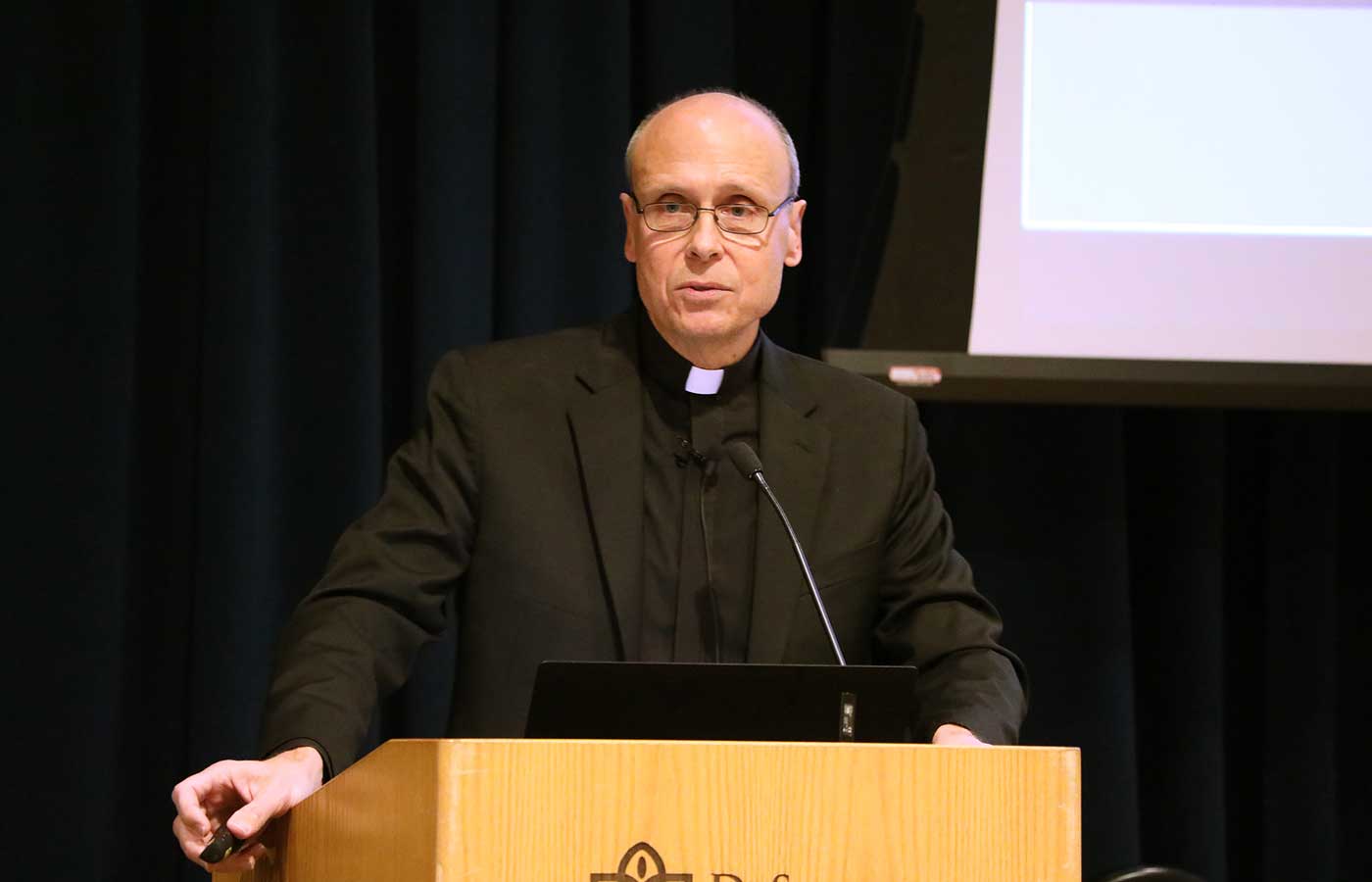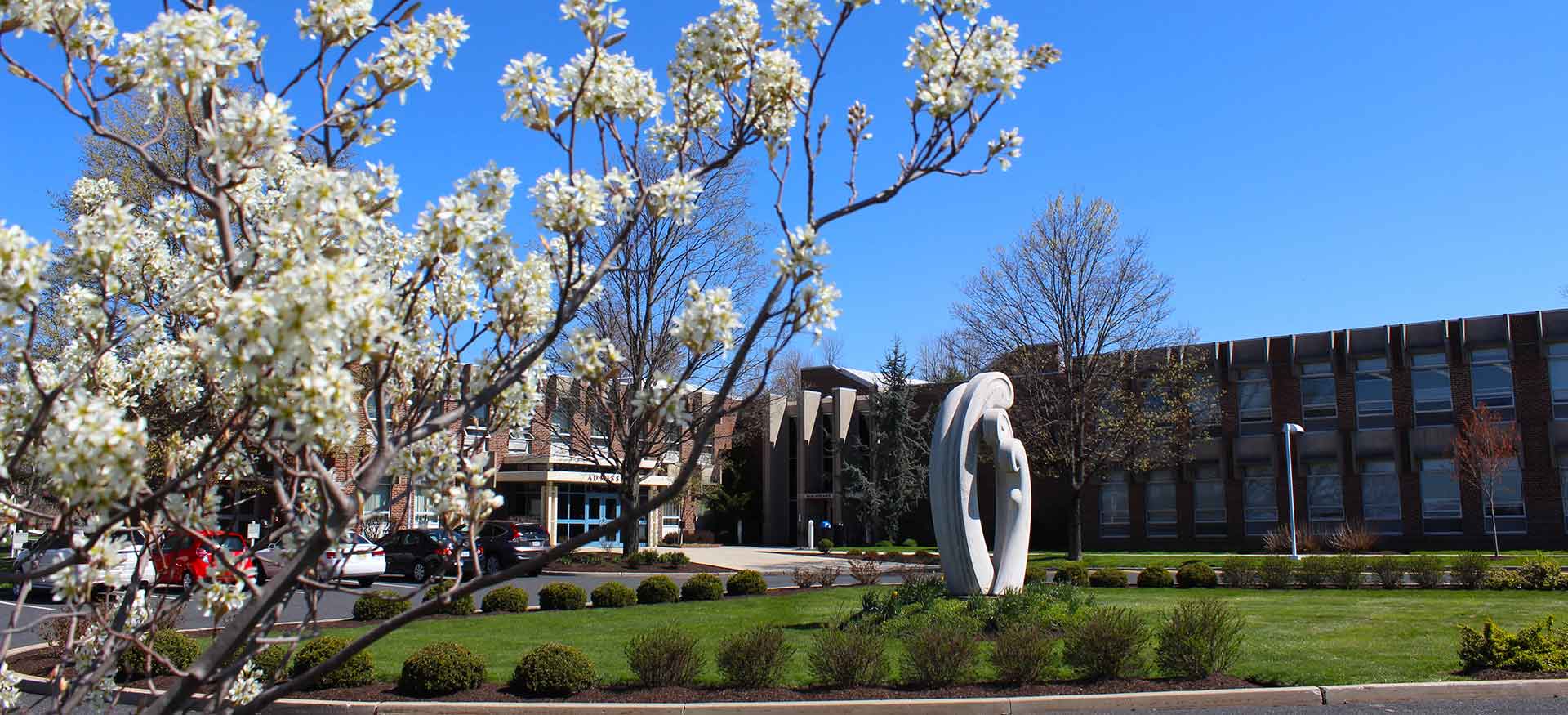The Springtime of this Pandemic

We have been through a long winter of death and devastation from the coronavirus pandemic. As a priest and president of a Catholic university, I lean on religious faith to make sense out of the senseless.
We have just come through Lent and into the Easter season and all of us, no matter our beliefs, can believe this: death does not have the last word. Winter subsides; spring, resurrection, and new life always comes. A powerful way to find meaning amid suffering is to serve others. In these pandemic-stained times, I pray we can see this Earth Day as an opportunity to serve the whole world.
I am moved by the words of Holocaust survivor Viktor Frankl: “In some ways suffering ceases to be suffering at the moment it finds a meaning.” Our lives may not be free from adversity; our freedom lies in how we respond. As individuals, we can pull meaning from this tragedy by finding ways to serve vulnerable people, even while we physically distance for the good of all.
I was inspired recently by two Physician Assistant students at our college, DeSales University, who looked at the lockdown of our communities and became mindful of forgotten members of our human family: people with no home to which they can retreat. Many emergency shelters have had to close their doors, and these students set about turning old plastic bags into water-resistant sleeping mats for folks sleeping outside. They even created an instructional video for making these “plarn” mats and put it on YouTube.
As individuals, we can pull meaning from this tragedy by finding ways to serve vulnerable people, even while we physically distance for the good of all.
I pray we as a society find new meaning in global cooperation. This Earth Day is unlike any we have experienced. The world’s interconnectedness has been starkly revealed, both in our hardship and in our hope. It is clear now that an affliction from a virus halfway around the world can threaten all of us. And yet, groups of people scattered around the globe working together can prepare one another, move supplies where they are most needed, and collect our best minds to work on a vaccine.
We have an opportunity to live on this planet together as one human family. In a recent interview, Pope Francis said, “let us not lose our memory once all this is past; let us not file it away and go back to where we were.” He recalled the need to care for God’s creation and to stem climate change, a message he delivered five years ago next month in his major encyclical letter, Laudato Si. This pandemic is not directly tied to climate disruption, but the next one could be. Climate change is a major reason one current epidemic, Lyme disease, is exploding as ticks multiply in the warmer climate. Cases have tripled in Pennsylvania in recent years and studies now show the number of Americans diagnosed with Lyme disease each year has reached 300,000.
Each one of us can find a way to serve the common good during our long road to recovery. This Earth Day, one way we can welcome the spring and draw forth new meaning is to advocate to our Members of Congress for greater international cooperation. It is clear we are going to need it even more now. Pope Francis and the United States Catholic bishops have been urging the U.S. to rejoin the Paris Climate Agreement, which would help us prevent more death and destruction from worsening epidemics, hurricanes, and wild fires.
The words of C.S. Lewis about living in an atomic age are very poignant now:
The first action to be taken is to pull ourselves together. If we are all going to be destroyed by an atomic bomb, let that bomb when it comes find us doing sensible and human things—praying, working, listening to music—not huddled together like frightened sheep and thinking about bombs.
This Earth Day, let us resolve to do sensible things to look after one another and prevent future devastation.
Sources:
Pope Francis quote:
Lyme disease and climate change:
- https://www.cdc.gov/climateandhealth/pubs/vector-borne-disease-final_508.pdf
- https://www.post-gazette.com/opinion/Op-Ed/2018/06/24/Don-t-let-Lyme-get-worse-Mary-Beth-Pfeiffer-first-epidemic-of-climate-change/stories/201806220017
Lyme disease - 300,000 diagnoses a year:
US Catholic Bishops advocacy:





